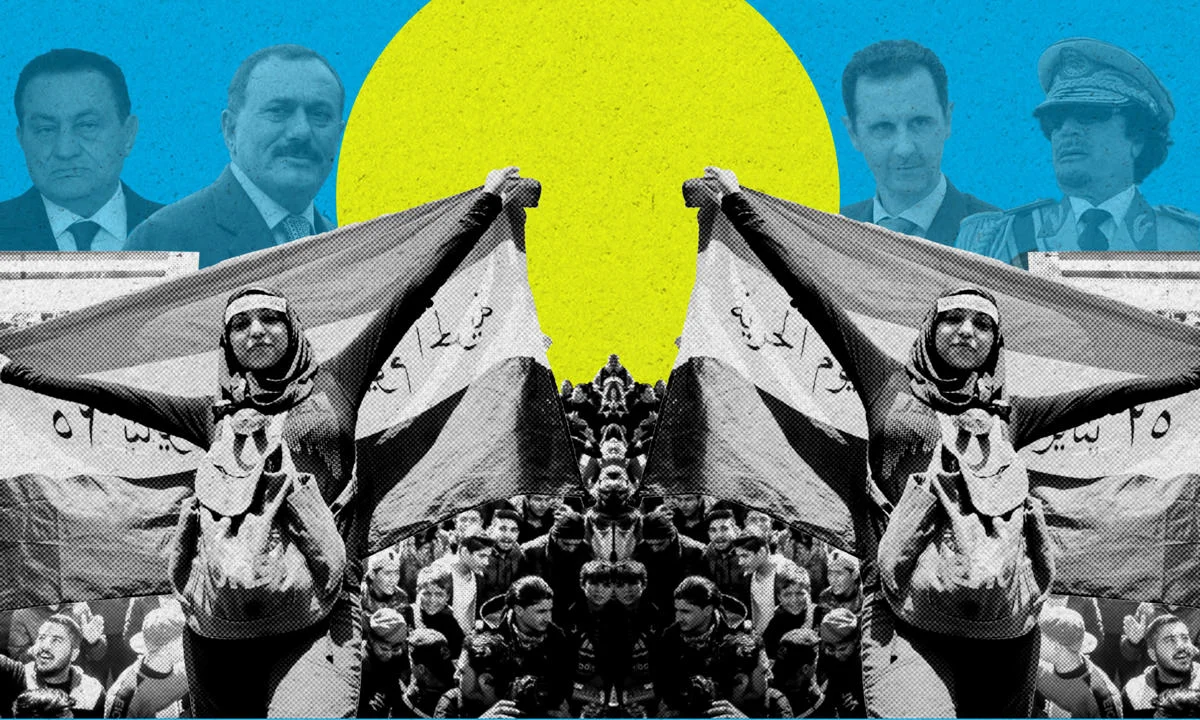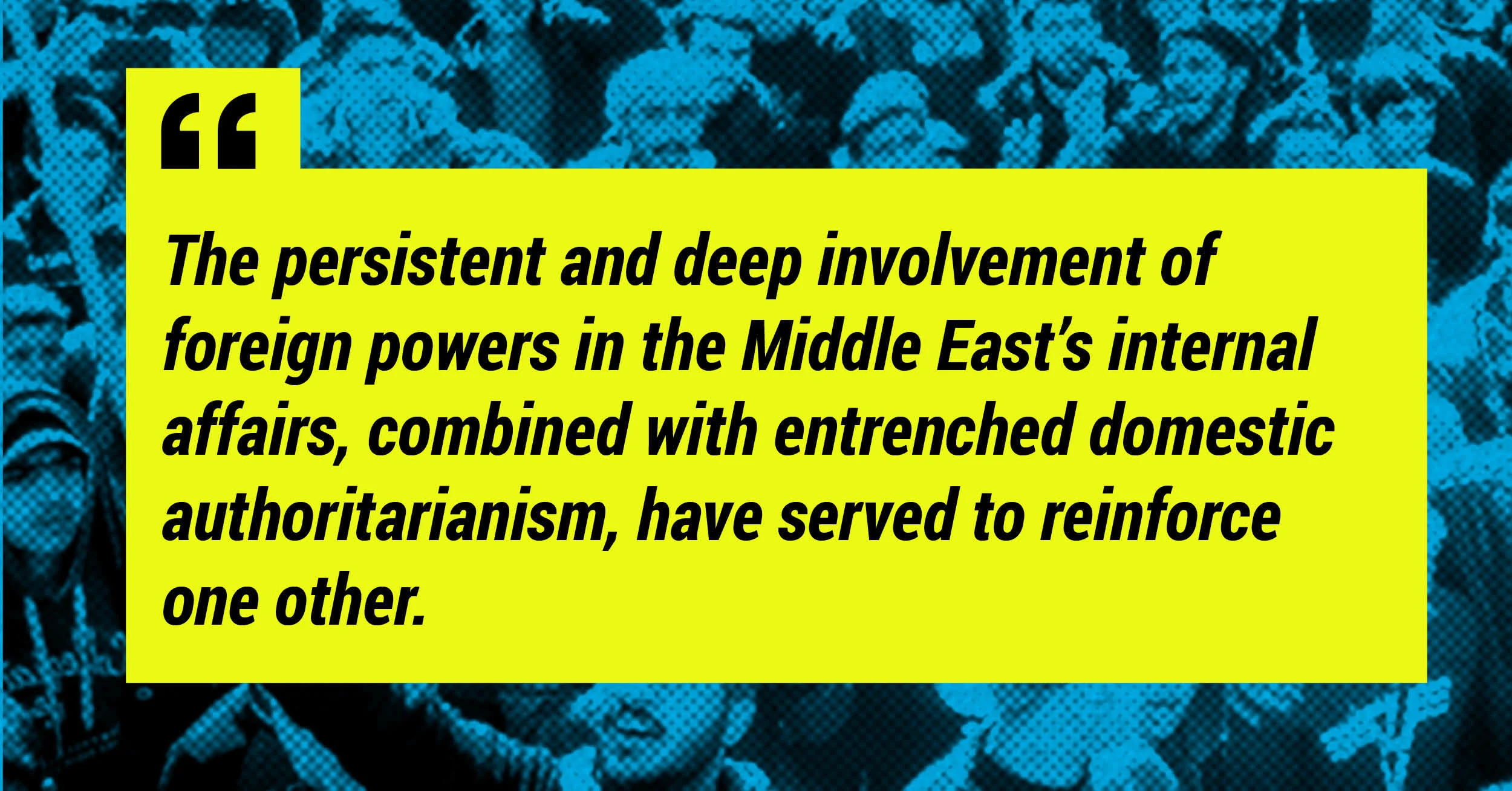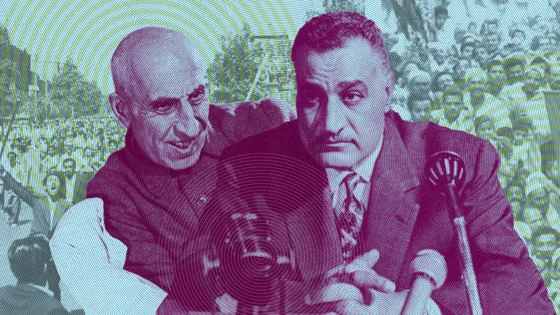The struggle for freedom and democracy in the Middle East

Contents
Why does the Middle East remain trapped in cycles of turmoil, repression, and unfulfilled dreams of inclusive politics where people have a real say in how they are governed? In his latest book, The Great Betrayal: the struggle for freedom and democracy in the Middle East, Fawaz Gerges, Professor of International Relations at LSE, argues that the region’s modern history is not a story of ancient hatreds or cultural incompatibility with democracy. Instead, it is a story of a long and painful struggle for self-determination – one repeatedly thwarted by colonialism, authoritarianism and foreign intervention.
“The persistent and deep involvement of foreign powers in the Middle East’s internal affairs, combined with entrenched domestic authoritarianism, have served to reinforce one another,” explains Professor Gerges. “Together, they help explain why the region’s people have been denied the opportunity to build representative governments and secure basic human and civil rights.”
By tracing the region’s trajectory from the collapse of the Ottoman Empire to the Arab Spring uprisings and beyond, Professor Gerges gives voice to the hopes of ordinary people, whose aspirations for self-determination and justice he believes will ultimately prevail.

The legacy of colonialism in the region looms large. While European powers once ruled directly, the United States has since built an “empire by proxy”, using military aid, arms deals, and alliances with compliant dictators to maintain influence and dominance. From the CIA-backed overthrow of Iran’s democratic leader Mohammad Mossadegh in 1953 to the support of autocrats like Egypt’s Hosni Mubarak and Saudi Arabia’s royal family, Western powers have consistently prioritised stability and access to oil over the rights of the region’s people and their aspirations for self-determination and freedom.
This pattern has had devastating consequences. In countries like Iran and Iraq, foreign-backed regime change empowered radical ideologies, like Shia and Sunni puritanical Islamism, and deepened instability. Today, many Arab rulers lack popular legitimacy – fearing their own people, they rely on patronage, coercion, and foreign support to stay in power.
“One of the most damaging legacies of the Cold War was the denial of the Middle East’s peoples’ right to self-determination,” says Professor Gerges. “From colonial times to the present, Western and Russian military interventions – both covert and overt – have repeatedly undermined grassroots movements striving for more inclusive governance, while bolstering authoritarian regimes that serve external interests.”

Authoritarianism and misrule
Over the past century, the region has seen a steady erosion of political freedoms and economic mismanagement. Autocrats have stoked nationalist sentiment and security fears to justify repression, often branding dissidents as foreign agents. In conflict zones like Syria, Libya, and Yemen, local elites have invited foreign intervention to gain an edge over rivals, further entrenching violence and division.
The consequence of this was writ large when, in December 2024, Russia and Iran were either unable or unwilling to continue to prop up the brutal regime of President Bashar al-Assad in Syria, leading to its swift collapse. While Assad had survived the Arab Spring uprising in 2011, his downfall 13 years later revealed his regime for what it was – a corrupt and illegitimate government propped up by foreign backers.
In 2011, many Libyans welcomed NATO’s intervention as a means to end Muammar Gaddafi’s rule. Kurdish groups in Iraq, Syria, and Turkey have similarly aligned with foreign powers in pursuit of autonomy. After the 2020 Beirut port explosion, over 50,000 Lebanese signed a petition urging France – Lebanon’s former colonial ruler – to take temporary control, reflecting deep disillusionment with local leadership. Feeling abandoned by regional allies and the international community, many Palestinians have turned to Iran and its local allies for support in resisting Israeli military occupation.
“The fact that large constituencies of public opinion condone and even lobby former colonial powers to return to the Middle East as liberators – despite all the wrongs Western powers have done to the Middle East – demonstrates how badly Arab rulers have failed their peoples,” says Professor Gerges.
“Unlike the first generation of post-independence leaders who sought economic and political sovereignty, many of today’s rulers prioritise their own political survival instead.”

The people’s voice
But tyranny is not destiny. The Arab Spring uprisings of 2010-12 and their resurgence in 2018-19 revealed a powerful truth: millions of ordinary people across the Middle East yearn for citizenship, accountability, and a better future. From Cairo’s Tahrir Square to the streets of Khartoum and Beirut, protesters demanded not sectarianism, tribalism or secession, but a reclaiming of the state from dictators-for-life.
These movements were met with brutal crackdowns, often aided by regional and global powers. But they also sparked a reawakening of civic consciousness and a nascent post-sectarian identity, as Sunnis and Shias increasingly embraced one another in pursuit of shared goals.
In the wake of COVID-19 and the economic meltdown it created in several Middle Eastern countries, as well as Israel’s destruction of Gaza in the aftermath of Hamas’s attack on Israel, everyday people are preoccupied with survival. However, despite setbacks, activists and civil society groups continue to push for change.
“In the long run, injustice is unsustainable. The human spirit – in the Arab world as everywhere – will ultimately risk everything to overcome it,” says Professor Gerges.
Hope for the future?
There are no tidy answers to the region’s chronic instability. However, there is reason to hope that a new political post-sectarian identity is forming. If allowed to fully materialise, this could fill the vacuum left by dominant ideologies like Arab nationalism and political Islam and be more inclusive and less ideological.
For this to happen, the powerful partnership between US foreign policy and local autocrats must be severed, says Professor Gerges. For too long, Western governments have been on the wrong side of history in the Middle East. By backing strongmen in the name of stability, they have helped entrench the very forces that fuel extremism and unrest.
Trust must be built between governments and their peoples to strengthen the resilience of both state and society, making them less dependent on external influence and less prey to foreign meddling and extremism.
Professor Gerges calls for a new approach which genuinely supports the self-determination of the region’s people, starting with the Palestinians, and pressures authoritarian regimes to respect human rights.
The region’s political and economic systems must be overhauled. This means rebuilding state institutions on the basis of legitimate authority, rule of law, and the provision of public goods. It also requires decentralising power to local communities, giving minorities and marginalised groups a stake in the political order.
While sweeping reforms may be difficult to achieve, incremental progress is possible – through piecemeal initiatives, social pacts, and grassroots movements. The goal is to move from authoritarianism to pluralism, from economic decline to growth, and from inequality to social justice.
Despite the grim realities, Professor Gerges is not without hope. The Middle East is not fated to remain mired in violence and repression. Like other regions before it, it is navigating the painful and often bloody process of state-building and nation-building.
“The future will be shaped not by kings, dictators and strongmen, but by the agency of everyday people, and in particular the massive growing Arab/Muslim youth population who will inherit the region. We have not heard their last roar,” he insists.
Professor Fawaz Gerges was speaking to Sue Windebank, Senior Media Relations Manager at LSE.
Banner image features Hosni Mubarak, Ali Abdullah Saleh, Bashar al-Assad and Muammar Gaddafi.




